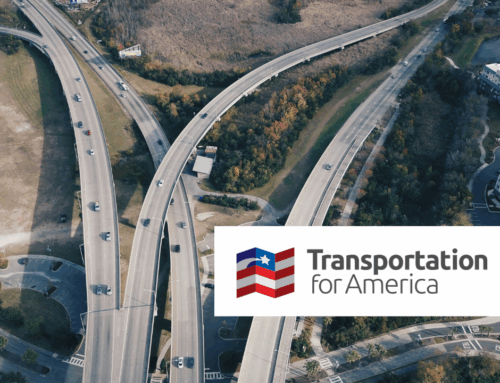TCS Hill Briefing: Don’t Drill and Drive: Weakening the “User-Pays” Highway Funding Principle Would Endanger Our Nation’s Transportation Infrastructure
Monday, January 30, 2012
12:00 pm – 1:30 pm
Rayburn House Office Building
Room B-338
Washington, DC
The last highway bill expired more than two years ago. As Congress debates various reauthorization funding proposals, the longstanding user-pays/user-benefits principle should be preserved. One proposal gaining momentum in Congress, directing royalty revenues from expanded onshore and offshore oil and gas production into the Highway Trust Fund, is fundamentally at odds with the user-pays principle.
On Monday, January 30, the Competitive Enterprise Institute, Reason Foundation, Taxpayers for Common Sense, and Natural Resources Defense Council will hold a briefing to discuss the importance of preserving the “user-pays/user-benefits principle”—and why proposals that would tie infrastructure funding to expanded energy production threaten the future health of our nation’s transportation system. The panel will feature a diverse range of transportation policy analysts from free-market, fiscal watchdog, and environmental organizations to discuss various aspects of the deeply flawed “drilling for roads” proposal, as well as solutions to long-term funding problems.
Where:
Monday, January 30, 2012
12:00 p.m. – 1:30 p.m.
Rayburn House Office Building B-338
Washington, D.C.
This is a widely attended event.
Lunch will be provided.
Panelists:
Erich Zimmermann, Senior Policy Analyst
Taxpayers for Common Sense
Shirley Ybarra, Senior Transportation Analyst
Reason Foundation
Deron Lovaas, Federal Transportation Policy Director
Natural Resources Defense Council
Moderator:
Marc Scribner, Transportation Policy Analyst
Competitive Enterprise Institute
Space is limited. Please register using the form below.
Questions? Contact Erich Zimmermann at TCS: erich@taxpayer.net
Additional Background on “User-Pays”
The Federal-Aid Highway Act of 1956 created the modern Interstate Highway System. The accompanying Highway Revenue Act established the Highway Trust Fund, which was created to provide a stable source of highway funding. The Revenue Act authorized the Treasury to collect taxes on producers and importers of fuel, who then pass most of that tax burden onto road users.
Set at a per-gallon rate, the rationale for the dedicated taxes was to link highway use with highway infrastructure investment. Prior to the creation of the Highway Trust Fund, federal-aid highways were funded out of general revenues and users did not face the costs of the infrastructure they used.
Adhering to the user-pays/user-benefits principle is superior to general revenue funding for a number of reasons:
1) Fairness: Highway users benefit from the improvements their user taxes generate.
2) Proportionality: Users who drive more pay more.
3) Funding Predictability: Highway use, and therefore highway user revenues, does not fluctuate wildly in the short-run.
4) Signaling Investment: Because revenue roughly tracks use, the mechanism provides policy makers with an important signal as to how much infrastructure investment is needed to maintain a desired level of efficiency.
5) Restraining Appropriations Meddling: A provision of the 1974 Budget Act exempts the Highway Trust Fund from typical appropriations debates, provided that 90 percent of revenue is collected from users. The trust fund and user taxes are tried-and-true policy tools for dampening political gridlock and its potentially harmful effects on our national transportation program.










